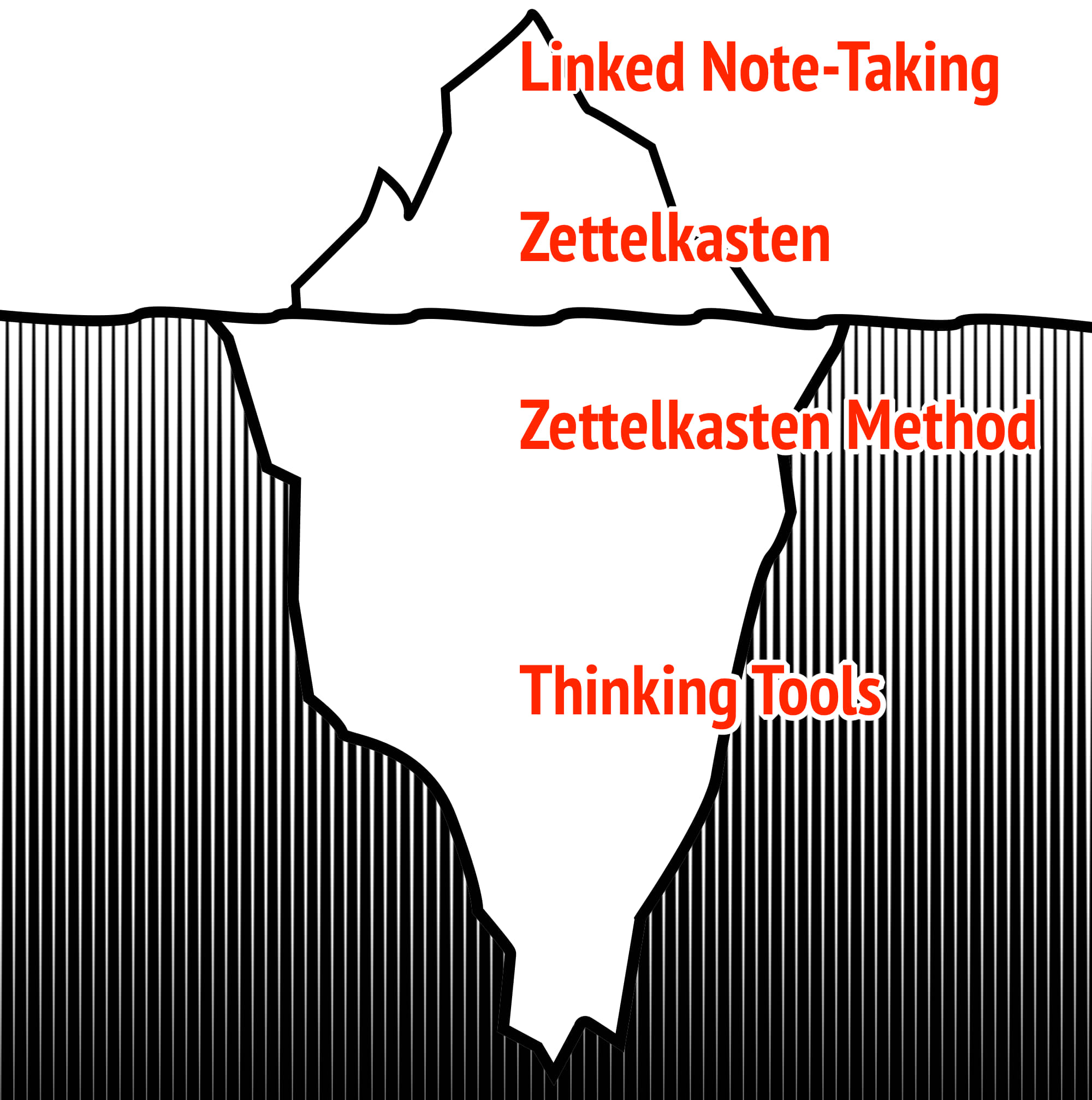Posts tagged “depth-of-processing”
The Scam Called “You Don't Have to Remember Anything”
Dear Zettlers, This scam is decades old now and it is quite surprising that people still fall for it. The search engines, old note-taking apps (you know, those with an elephant icon and the like) and AI have something in common: They claim that the effort of remembering things is outdated like using a candle in the age of electric light.
Nori, You Do Have a Zettelkasten!
This is the last session of this little series of developing a knowledge work practice with Nori. Background: Nori wrote an article on leaving her Zettelkasten for good. The quality of her reflection led to my decision to contact her with the offer for a couple of coaching sessions. After two coaching sessions (watch the first recording here), she overhauled her system of knowledge work for which she wrote an article to reflect on our coaching and what is next for her.
On Developing a Deep Knowledge Work Practice (Comment on Nori’s Blog Post)

Context: Nori wrote an article about quitting the Zettelkasten Method. She clearly tried hard and wrote a thoughtful reflection on her journey. So, I decided to reach out to her and offer some help. We recorded the first session here: Nori’s Zettelkasten Journey and Why She Let It Go. My goal was not to bring her back to the only true way, but to apply general coaching methods.
Heal From Information Intoxication by Regaining Depth
Dear Zettlers, I’d like to share three paragraphs from the English translation of the Zettelkasten Method book: The Zettelkasten’s active approach counters the problem of modern information inflation—the overwhelming abundance of low-value content. Information availability is no longer the bottleneck; sense-making and understanding are. With information so abundant, the best use of our time is to identify high-quality sources and engage with them deeply. Rather than wasting time, energy, and attention on countless YouTube videos, blog posts, or superficial e-book skims, select a high-quality source and study it intensively. The most effective way to learn is through active engagement: asking questions, connecting new knowledge to what you already know, experimenting with applications, and integrating insights into your knowledge base. The Zettelkasten is the ideal tool for this.
The Zettelkasten Method for Hindu Philosophy
In this video, I coach Ashish on using the Zettelkasten Method to study Hindu philosophy. Hindu philosophy is an ideal domain for learning how to use a Zettelkasten to manage complex, seemingly endless topics. One major challenge is atomicity, as each idea can be explored in greater depth, often requiring notes to be broken down repeatedly. To avoid getting lost, you’ll need to develop both tolerance for this process and a disciplined approach to structuring your work.
How to Explore the Depth of an Idea
In this video, I coach Fernando on how to create depth in his knowledge work using the Knowledge Flower, a core framework for increasing the value of information and turning it into knowledge. It is a thinking tool rooted in my ongoing research on the value of knowledge. If you want to explore the fascinating topic of the value of knowledge, read the article The Value of Knowledge, which offers a great starting point through a philosophical lens. My own research extends beyond philosophical musings and aims to develop practical thinking tools.
Nori’s Zettelkasten Journey and Why She Let It Go - An Interview
In this video I talk with Nori Parelius about her experience with her Zettelkasten. She shares the struggles she encountered, what ultimately led her to abandon her system, and the lessons she learned along the way. Nori has also penned a thoughtful article, diving deeper into her decision. Check out the video for our candid conversation and read her full story to see if her insights resonate with your own Zettelkasten journey.
Mindscapes: The Zettelkasten as a Thinking Environment

In the past article Mindscapes: Thinking Environments in Your Way of Living we looked at thinking environments in your life in general. One of these thinking environments is the Zettelkasten. Cal Newport sees the Zettelkasten Method as one of the many ways of managing knowledge. In doing so, he overlooks a very special characteristic of the Zettelkasten: the Zettelkasten is a very special thinking environment: it is integrated.
Cal’s Books are Salad
Hi Zettlers, What kind of (information) food are Cal Newport’s books? This is the question that I try to answer for myself. His term “ultra-processed content” is spot on for the
process that both food and content processing share: It is about
refining and combining key stimuli. Sugar, Fat, Salt, Protein — each
are specific stimuli that in isolation are not particularly
understandable (try eating pure sugar). However, cloaked in
engineered food and especially in combination, you can overload the
brain and generate the (hyper-)palatability.
The Iceberg Theory of the Zettelkasten Method — Exploring the Depths

The Zettelkasten Method is not only a method of knowledge work. It is also a diagnostic tool. To demonstrate this, I would like to start with a short story from my work as a health and fitness trainer: A client contacted me because she wanted to lose weight. We discussed her situation and I sent her the first steps. One month later, she reported failure. She was unable to implement the program that we had discussed together. We reduced the program because my client said she was unable to implement it as planned due to time constraints and stress. The pattern repeated the next month. So we looked more closely for the causes. A surprising problem came to light: